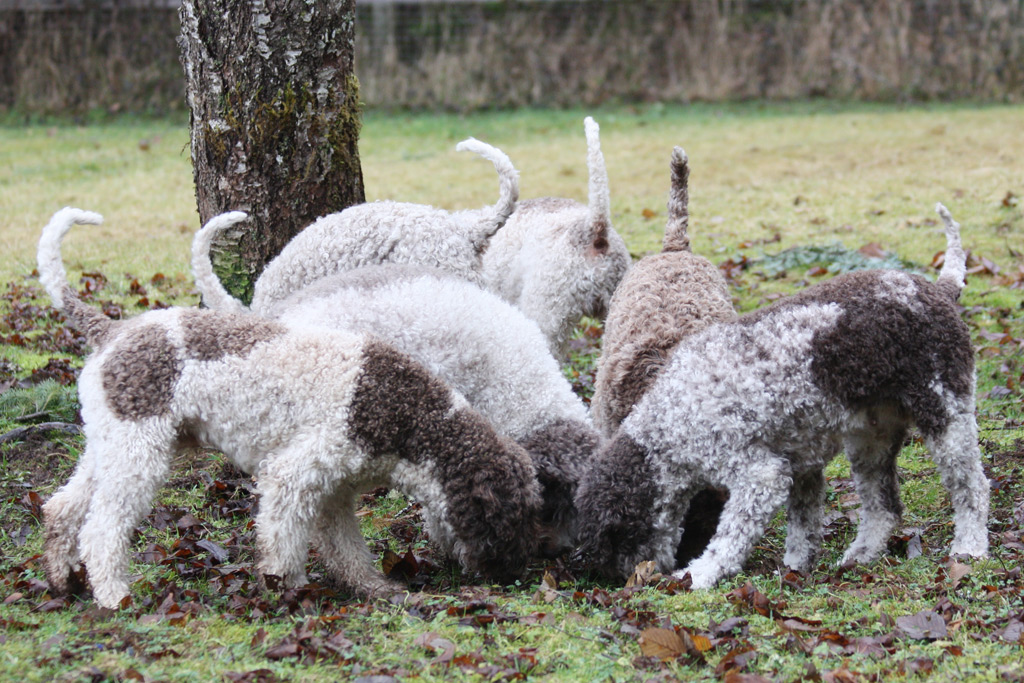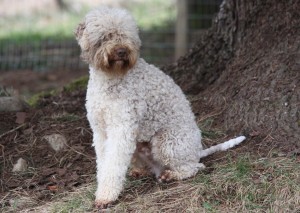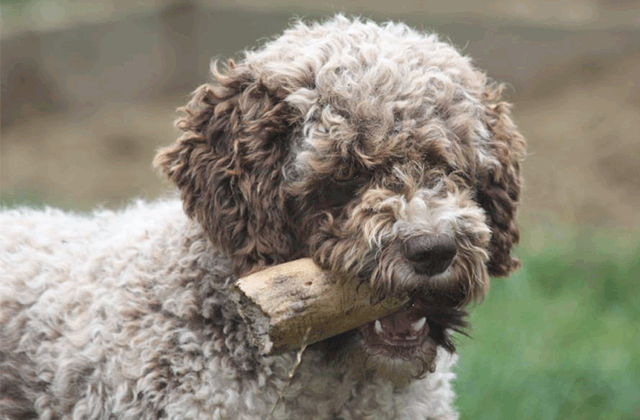Italian Breed
Lagotto Romagnolo History
The Lagotto Romagnolo is an ancient Italian breed that was originally used as a hunting dog and water retriever. The breed’s own name comes from the Italian word “Lago” which means “lake”. Originating from the marshlands of Ravenna and the lowlands of Comacchio, which is in the sub-region of Romagna, Italy.
Roots: The breed’s roots are thought to go back at least to 1474 A.D. When the marshlands were drained towards the end of the 19th century and turned into arable land, the vast Lagotto Breed – Historyflocks of waterfowl disappeared and the Lagotto needed to find a new purpose. Because of their highly tuned nose for searching things out, their keen senses and natural agility, they have proven to be very efficient in truffle hunting and are the only dog bred for this purpose.
Officially Recognized: By the 1920’s the breed was diminishing and there seemed little interest in renewing this ancient breed, however in the 1970’s with just a few Lagotto’s remaining some Romagnan enthusiasts (Quintino Toschi, Prof. Francesco Ballotta, Dr. Antonio Morsiani and Lodovico Babini) decided to establish this dog as a recognized breed. In 1988 they established C.I.L (Club Italiano Lagotto). As a result, in 1995 the breed was officially recognized by the F.C.I.
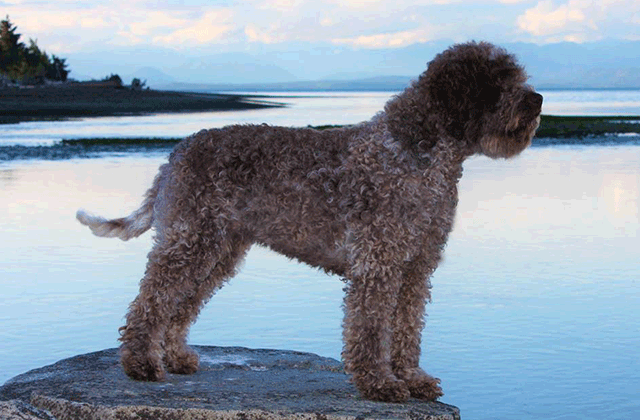
Lagotto Romagnolo Profile
Temperament: They are an affectionate, undemanding and devoted dog. Therefore, they make an excellent companion and enjoy being with their owners as they are very loyal and loving.
Exercise: Lagottos are a sporting dogs and do require sufficient exercise. This is an intelligent breed and it is important for their minds to be occupied. They do well at agility or obedience training. Fortunately, they are easy to train and eager to please.
Focus: Whether working or playing, Lagotto Romagnolo dogs have the ability to concentrate at the task at hand and are not easily distracted by other scents or animals. Due to their alert nature, they make good watch dogs but are not suitable as guard dogs – they would prefer to be a friend.
The Lagotto are traditionally pack dogs who enjoy the company of other dogs and pets. They are also known to be good around children as long as they are socialized from an early age.
Traits: Dependable, Clever, Loving, Loyal, Affectionate, Agile, Obedient, Happy and Friendly.
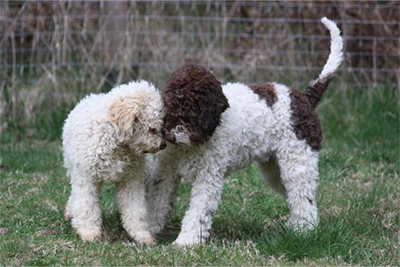
Lagotto Romagnolo Appearance
Colour: Solid white, off white, orange, brown, and white with orange markings, brown markings, roan, and brown with tan markings. While a brown puppy may be almost black when young, solid black or black markings are an unacceptable color.
Height: Males: 17 – 19 inches; Females: 14 – 18 inches
Weight: Males: 29 – 35 lbs.; Females: 24 – 32 lbs
Life Span: 11 – 16 years
Coat: The Lagotto has a double coat which is water proof. It has a wooly textured, rough-surfaced coat of thick, ring-shaped curls evenly distributed all over his body except his head. However, the curls are looser on the head and form eyebrows, whiskers and a beard.
Bathing: The Lagotto does not require frequent bathing. They have hair rather than fur, resulting in very little shedding, making them a good choice for people with allergies.
Grooming: Their coat is best when kept at about 1 to 1.5 ” in length. Show dogs are trimmed down and left to grow out naturally before showing.
The signature look of the Lagotto is the tight curls that fit the body. They are to be shown as a natural rustic looking dog with no blowing, fluffing or brushing out of the hair.
Showing: For showing in the United States, the coat should appear in a rustic style and it should match the lines of the dog so that the curls are evident.
The dog should have the appearance of a working dog that it is actually ready to start working! If clipped down, the coat will need about 3 months of growth to be ready to show. Otherwise, shaping can be performed before the shows.
Hair on the ears should be trimmed around the edges to the leather. If the ear shows irritation and buildup of dirt and earwax, the hairs from the ear canal should be gently plucked out regularly.
Some coats matt easier than others.

